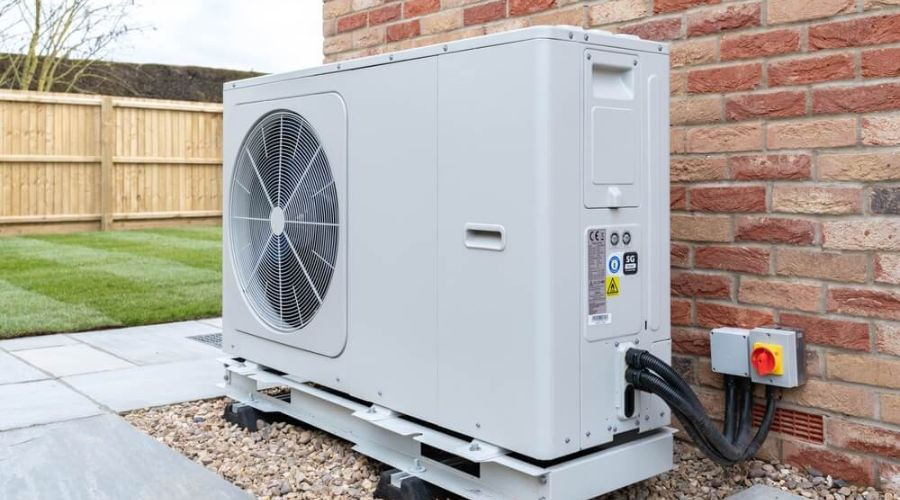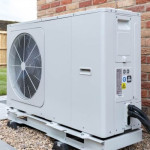Common Questions About Heat Pumps
Replacing the air conditioner in a home or choosing a heating and cooling system for new construction is a big decision. Not only is the equipment and installation expensive, it is a decision that homeowners will have to live with for nearly a quarter of a century. To make the right decision, homeowners need to understand all of their options. In decades past, there weren't as many options to choose from, so the decision was easier to make. Now, new technologies require homeowners to do their homework before they make a decision.
Heat pumps are one of the new technologies available for heating and cooling a home. People everywhere are turning to this exciting technology to ditch natural gas heating and enjoy savings along with comfort. Here is a quick guide to help homeowners understand what heat pumps are and why people are making the switch.
What Is a Heat Pump?
 The term "heat pump" perfectly describes how a heat pump keeps a home comfortable. In a normal air conditioner, refrigerant is evaporated. The process of refrigerant evaporating causes the evaporator coil to become very cold. As warm, moist indoor air is blown over the cold coil, it is cooled while the refrigerant is warmed. The warmed refrigerant is pumped outside, where the absorbed heat is blown off.
The term "heat pump" perfectly describes how a heat pump keeps a home comfortable. In a normal air conditioner, refrigerant is evaporated. The process of refrigerant evaporating causes the evaporator coil to become very cold. As warm, moist indoor air is blown over the cold coil, it is cooled while the refrigerant is warmed. The warmed refrigerant is pumped outside, where the absorbed heat is blown off.
In a typical furnace, heat is supplied by burning fossil fuels. With heat pumps, the process that provides the cooling power for a heat pump is simply reversed. Heat energy is absorbed outdoors and pumped inside, where cool indoor air is blown across the warmed coil, warming the inside of the home.
Why Should Homeowners Consider Heat Pump Installation?
Heat pumps can be packaged as central heating and air conditioning units to retrofit an old central system, or they can be put in ductless mini splits to accommodate different climate control needs. The versatility of heat pumps is just one of the reasons that people are installing them. Some of the other reasons heat pumps are becoming popular are:
- Cost Savings: High gas bills plague homeowners during the winter. With a total electric heating and cooling system, homeowners can expect much more consistent bills all year long instead of experiencing the fluctuating costs of natural gas.
- Eco-Friendliness: Heat pumps allow homes to be heated and cooled by electricity only. This enables homeowners to shut off their gas service and stop pumping greenhouse gasses into the air.
- Reliability: It may be counterintuitive, but heat pumps tend to last longer than ACs and furnaces. While they do double the work, the fact that they stay running all year long allows them to stay lubricated. This results in fewer repairs and improved longevity compared to other heating and cooling options.
Signs That Heat Pump Repair Is Needed
 Heat pumps are more reliable than central heating and AC units, but they will need repairs from time to time. Luckily, the same symptoms that indicate a traditional system needs repairs are also indicators that heat pump repairs are needed. Some of the signs are:
Heat pumps are more reliable than central heating and AC units, but they will need repairs from time to time. Luckily, the same symptoms that indicate a traditional system needs repairs are also indicators that heat pump repairs are needed. Some of the signs are:
- Knocking or banging
- High bills
- Long heating or cooling cycles
- No power to the unit
- No power to the thermostat
About Chad's AC Direct
Chad's AC Direct provides handwritten estimates for every repair or installation job they do. They provide great value and offer personalized attention on every visit. For HVAC service in Montgomery, AL, call Chad's AC Direct today.



